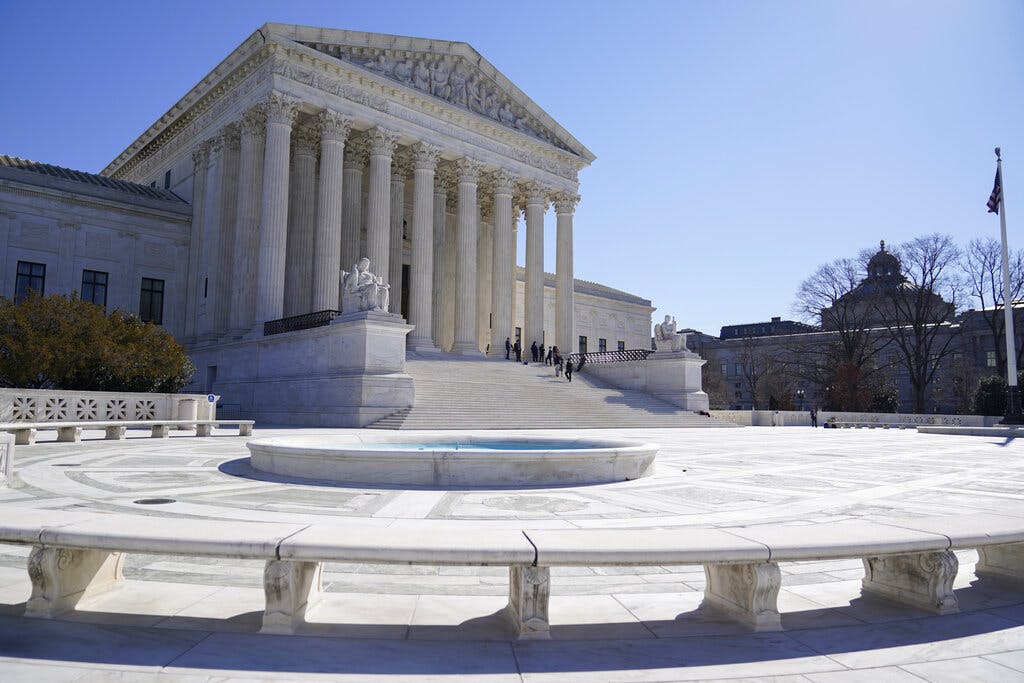Justice Thomas Fires New Warning Shot Over Big Tech Liability
Critics believe technology companies have too much power over freedom of speech in America.

Associate Justice Clarence Thomas of the Supreme Court fired the latest warning shot at Big Tech on Monday, urging his fellow justices to take a closer look at the federal law that gives technology companies such as Facebook and Twitter broad protection from lawsuits filed by their users.
In an opinion attached to the court’s refusal to hear a case from Texas — Jane Doe v. Facebook Inc. — Justice Thomas wrote that existing laws shield Facebook from liability even when its own actions cause harm to others. He said it is time for the court to address the “proper scope of immunity” enjoyed by tech platforms.
No other justices signed on to his statement.
Justice Thomas’s suggestion was related to a case involving a 15-year-old Texas woman’s attempts to sue Facebook, whose parent company has since rebranded itself as Meta, after she was lured to a meeting by a man she met on the social media network in 2012 and then raped, beaten, and trafficked for sex.
She escaped her captor and later sued Facebook in Texas state court, alleging the company violated the state’s anti-sex trafficking laws. Facebook’s appeals in the case reached the Texas supreme court, which ruled that part of her claim is invalid because the company is shielded from liability under Section 230 of the 1996 Communications Decency Act.
That section, which shields social media companies from liability for any content posted by third parties, has become a target for critics who believe technology companies have too much power over freedom of speech in America.
Both Democrats and Republicans in Congress have put forth various proposals to reform Section 230 in the past few years, and both presidential candidates in the 2020 election said they supported efforts to change the law.
Democrats, by and large, say the law allows tech platforms to host hateful content with impunity, and Republicans complain that the law allows the platforms to suppress conservative viewpoints.
In his opinion, Justice Thomas said the Texas supreme court’s decision in the case “exemplifies how courts have interpreted Section 230 ‘to confer sweeping immunity on some of the largest companies in the world.’”
“Here, the Texas Supreme Court afforded publisher immunity even though Facebook allegedly ‘knows its system facilitates human traffickers in identifying and cultivating victims,’ but has nonetheless ‘failed to take any reasonable steps to mitigate the use of Facebook by human traffickers’ because doing so would cost the company users — and the advertising revenue those users generate,” Justice Thomas wrote.
“It is hard to see why the protection Section 230(c)(1) grants publishers against being held strictly liable for third parties’ content should protect Facebook from liability for its own ‘acts and omissions,’” the justice added.
Justice Thomas, the senior figure on the court in terms of time-in-grade, said he agreed with the court’s decision not to hear the Jane Doe case. He said, though, that unless Congress takes steps to clarify the scope of immunity provided by Section 230, the court should do so “in an appropriate case.”

